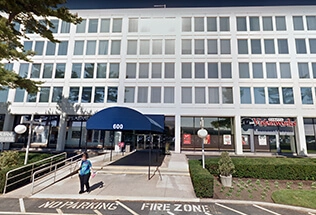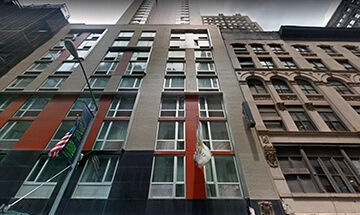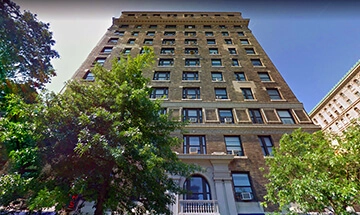If you or a loved one has been injured and are seeking financial compensation, you might be wondering what to expect. Civil cases cover a wide range of disputes, from personal injuries to contract breaches. One common question we get at Schwartzapfel Lawyers is, “Do civil cases have a jury?”
Now, the answer isn’t always a simple yes or no. In some cases, you have the right to a jury trial, but a judge might decide the outcome in others. It depends on factors like the type of case and the amount of money you’re seeking. Let’s take a closer look at your right to a jury trial in civil cases.
In the meantime, if you require legal representation for either a jury or bench trial, please don’t hesitate to contact Schwartzapfel Lawyers today. You can connect with us either online or by calling 516-342-2200. Alternatively, please continue reading.
Do You Have The Right To A Jury Trial In Civil Cases?
The Seventh Amendment of the U.S. Constitution guarantees the right to a jury trial in certain civil cases. This generally means if you’re seeking monetary damages over $20, you can request a jury trial.
However, it’s important to understand that not all civil cases fall under this provision. If your case is seeking a non-monetary remedy, such as an injunction or a court order to stop a certain action, a jury might not be involved. These situations are often more complicated, and a judge may be better suited to make a decision based on the specific details of your case.
If you’re unsure whether your case qualifies for a jury trial, it’s crucial to consult with seasoned attorneys who can assess your situation and advise you on the best course of action.
The skilled attorneys at Schwartzapfel Lawyers have over (150) years of combined experience successfully handling civil cases. Call us now at 516-342-2200 for a free consultation in which we’ll break down your legal rights and options.
How Does Jury Selection Work?
Jury selection is anything but a lottery. While it starts with potential jurors being randomly summoned from the community, the process quickly becomes strategic. Skilled attorneys are looking for impartial people to sit on your jury.
It’s a search for those who are able to set aside personal biases to judge a case solely on the evidence presented.
This quest begins with “voir dire,” a legal term that simply means “to speak the truth.” During voir dire, the judge and the skilled attorneys talk with potential jurors and ask questions.
These questions are designed to reveal hidden prejudices or conflicts of interest. They’re also trying to find out whether a juror has had past experiences that could color their judgment. It’s a bit like a job interview, but the stakes are much higher.
What Is Voir Dire Like?
Seasoned attorneys are looking for jurors who are able to analyze evidence objectively. Moreover, the jurors should be able to listen to both sides of the story with an open mind. Ultimately, jurors should be able to reach a verdict fairly.
The questions asked during voir dire can be surprisingly personal. Qualified attorneys might ask about your family, job, hobbies, and political views. They might inquire about any past experience you’ve had with the legal system, whether you’ve been a victim of a crime, or if you have any strong feelings about the case being tried.
It can feel intrusive, but these questions are necessary for qualified lawyers to “weed out” potential jurors who might be predisposed to favor one side. For example, in a personal injury case, a skilled attorney might ask if you’ve ever been injured in an accident or if you have any negative feelings toward skilled personal injury lawyers.
The goal here is to craft a jury from the available individuals to help the seasoned attorneys win the case. It certainly isn’t always the easiest order to fulfill, but it’s an essential component of the jury and trial processes.
At Schwartzapfel Lawyers, our seasoned attorneys understand the ins and outs of jury selection. We have extensive experience and know how to look for biases in jurors. To this end, we ask the right questions and can select jurors who can approach your case with the impartiality it deserves.
So, please, allow the skilled legal team of Schwartzapfel Lawyers the honor and privilege of guiding you through the jury selection process to ensure that your voice is heard. Call us now at 516-342-2200 for a free consultation and let us help you fight for your rights!
What Happens During A Civil Jury Trial?
Now that we’ve covered jury selection, let’s dive into the heart of a civil jury trial. It’s a structured process designed to ensure a fair and just outcome.
Opening Statements
The trial begins with opening statements. Each side’s qualified attorney takes the floor to present their version of events. It’s basically like a preview of the evidence you’re about to see and hear. The plaintiff’s seasoned attorney goes first, outlining their client’s claims and what they hope to prove. After that, it’s the skilled defense attorney’s turn.
They deliver their point of view, as they want the jury to see events. The qualified defense attorney highlights any weaknesses in the plaintiff’s case and emphasizes their own arguments. It’s the perfect opportunity for both sides to make a strong first impression on the jury, thus shaping the narrative of the trial.
Witness Testimony
Witness testimony is when the evidence starts to take shape. Witnesses with firsthand knowledge of the events in question are called to the stand and questioned by both sides. There are two (2) types of witnesses:
- Ordinary Witnesses: These are everyday people who just happened to witness something important. They can only testify to what they personally saw, heard, or experienced.
- Expert Witnesses: These are professionals with knowledge in a particular field relevant to the case. They offer opinions and interpretations based on their expertise. For example, in a medical malpractice case, a doctor might testify about the standard of care and whether it was met.
Witness questioning is an extremely important process in which both sides will try to extract the best information to support their case. To learn more now, call Schwartzapfel Lawyers at 516-342-2200 or schedule your free consultation online today.
Closing Arguments
After all the witnesses have spoken and the evidence has been laid out, the skilled lawyers get their final chance to make their case. Closing arguments are where they connect the dots, weaving together all the different pieces of the trial into a cohesive narrative.
They’ll remind the jury of all key points, address any lingering questions, tug at their heartstrings, or appeal to their logic — all with the goal of winning the jury over.
Jury Instructions And Deliberations
Once the seasoned lawyers have finished their impassioned pleas, the judge takes over. They give the jury detailed instructions — essentially a guide to direct them. These instructions are critical because they explain the legal rules the jury must follow so that they can reach a fair and just verdict.
With these instructions in hand, the jury disappears behind closed doors for deliberations. During this secret meeting, they hash out everything they’ve heard and seen during the trial.
They discuss the evidence, debate arguments, and try to reach a consensus. It’s serious business. Emotions often run high during this time, which the jury ideally reigns in to reach a sound decision.
The Verdict And Beyond
The last event is the actual verdict itself. The jury returns to the courtroom, and the verdict is read aloud, bringing a wave of relief, joy, or disappointment, depending on which side you’re on.
The party that wins has all their claims validated, as well as all the hard work that went into supporting their case. For the losing side, feelings are much different. That said, it’s not the end of the road, as there’s the possibility of appeal, wherein a higher court will look at all material matters once more with fresh eyes.
Facing A Legal Dispute? Call Schwartzapfel Lawyers Now!
At Schwartzapfel Lawyers, we understand that a civil trial can be a stressful and emotional experience. Thankfully, you don’t have to face it alone. Our seasoned attorneys will be by your side every step of the way.
As your personal advocate, you can count on us to fight for your rights both in and out of court. So, please, don’t wait until it’s too late. Instead, act now by calling us today at 516-342-2200 for your free consultation and/or case evaluation.
No matter your situation, it will be our honor and privilege to fight – and win! – for you. Call now!
DISCLAIMER: Nothing on this page should be considered legal advice. You should seek the appropriate counsel your situation requires. For more information, call 516-342-2200 now!
Sources
Schwartzapfel Lawyers, P.C. | Fighting For You
11 must-dos from a voir dire master | American Bar Association
Voir Dire QUESTIONS.pdf | New York State Unified Court Systems
How Courts Work: Opening Statements | American Bar Association
















